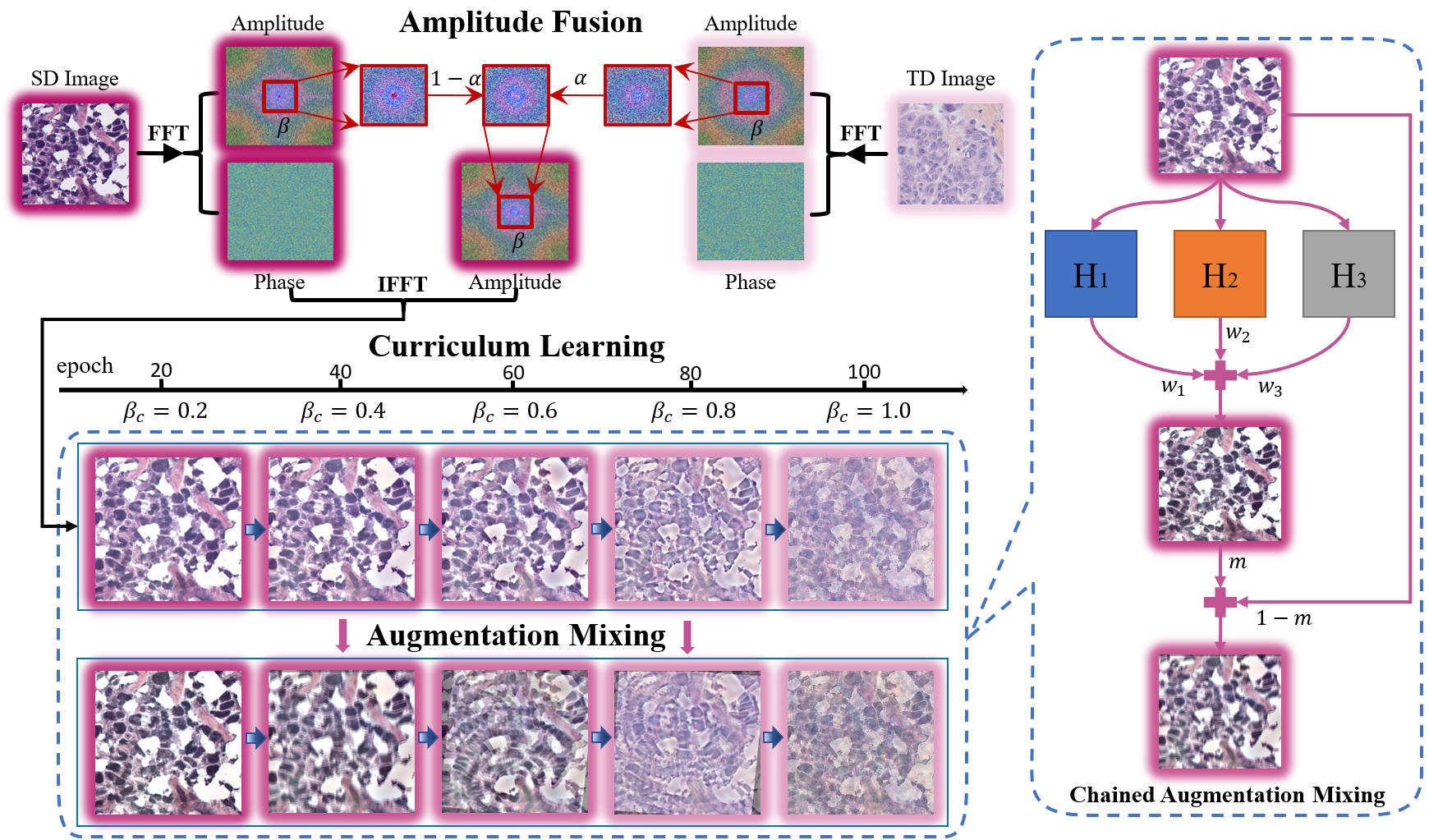Curriculum-Based Augmented Fourier Domain Adaptation for Robust Medical Image Segmentation
Accurate and robust medical image segmentation is fundamental and crucial for enhancing the autonomy of computer-aided diagnosis and intervention systems. Medical data collection normally involves different scanners, protocols, and populations, making domain adaptation (DA) a highly demanding research field to alleviate model degradation in the deployment site. To preserve the model performance across multiple testing domains, this work proposes the Curriculum-based Augmented Fourier Domain Adaptation (Curri-AFDA) for robust medical image segmentation. In particular, our curriculum learning strategy is based on the causal relationship of a model under different levels of data shift in the deployment phase, where the higher the shift is, the harder to recognize the variance. Considering this, we progressively introduce more amplitude information from the target domain to the source domain in the frequency space during the curriculum-style training to smoothly schedule the semantic knowledge transfer in an easier-to-harder manner. Besides, we incorporate the training-time chained augmentation mixing to help expand the data distributions while preserving the domain-invariant semantics, which is beneficial for the acquired model to be more robust and generalize better to unseen domains. Extensive experiments on two segmentation tasks of Retina and Nuclei collected from multiple sites and scanners suggest that our proposed method yields superior adaptation and generalization performance. Meanwhile, our approach proves to be more robust under various corruption types and increasing severity levels. In addition, we show our method is also beneficial in the domain-adaptive classification task with skin lesion datasets. The code is available at https://github.com/lofrienger/Curri-AFDA.
PDF Abstract






 CoNSeP
CoNSeP
 CryoNuSeg
CryoNuSeg